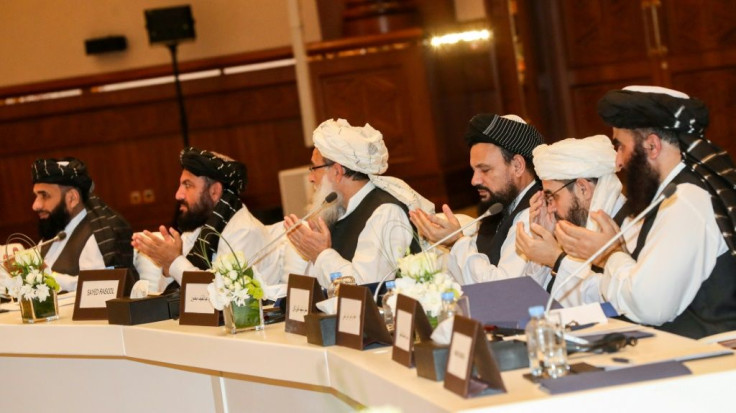Taliban, Afghan Government Agree To Cease-Fire To Observe Muslim Festival

KEY POINTS
- The Taliban and Afghan government agreed to only the third cease-fire since 2001 to allow both sides to observe the Muslim festival of Eid al-Adha
- The Taliban threatened to retaliate if the the Afghan military does not observe the three-day cease-fire
- Afghan President Ashraf Ghani said the cease-fire will precede the long-delayed peace talks and the government will finish releasing 5,000 Taliban prisoners in a show of faith
The Taliban and the Afghan government have agreed to a three-day cease-fire starting Friday to observe the Muslim festival of Eid al-Adha.
“In order that our compatriots may spend the days and nights of Eid-al-Adha in even more security and joy, all mujahedeen are instructed to halt offensive operations against enemy forces during the three days and nights of Eid al-Adha,” the Taliban said in a press release on Tuesday.
“Moreover, all mujahedeen are notified that no one has permission to enter enemy controlled areas and neither are opposition elements allowed to enter our areas. Spend Eid in your own areas and provide a peaceful and secure environment for the general public.”
The Taliban did warn any act of force by the Afghan military during the three days would be met in-kind.
Afghan President Ashraf Ghani confirmed the cease-fire, saying it was the first step to the start of long-delayed peace talks next week. Like the Taliban, the Afghan military will be suspending all operations during the cease-fire. Also in a show of good faith, Ghani said the government would finish releasing Taliban prisoners as promised under in February’s U.S.-Taliban deal.
“To demonstrate the government's commitment to peace, the Islamic Republic will soon complete the release of 5,000 Taliban prisoners,” Ghani told reporters. “With this action, we look forward to the start of direct negotiations with the Taliban in a week's time.”
It marks the third cease-fire in Afghanistan since 2018, which remain the only cease-fires agreed upon since the U.S. invasion in 2001 after the 9/11 attacks.
The first was in June 2018, around that year’s Eid al-Adha, when both sides agreed to a cease-fire to observe the festival. The second was in May 2020 so both sides could observe the end of the Muslim holy month of Ramadan.
© Copyright IBTimes 2025. All rights reserved.





















